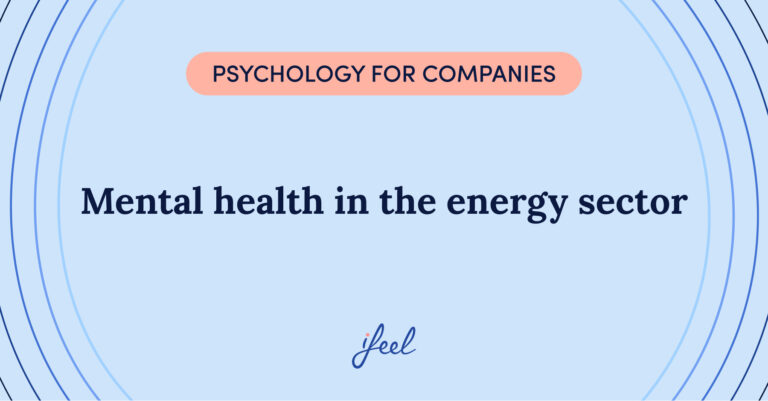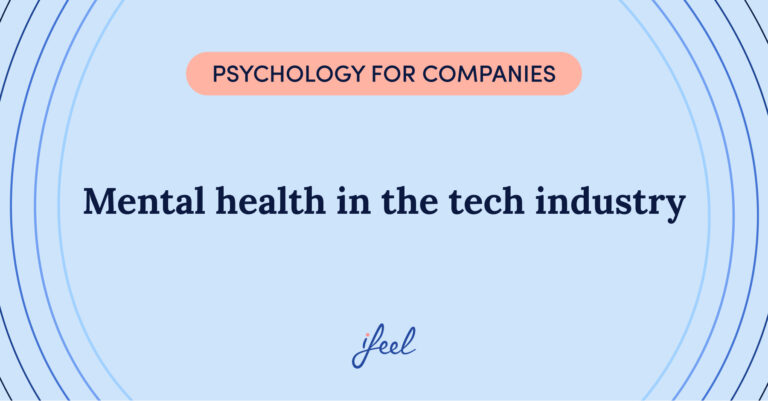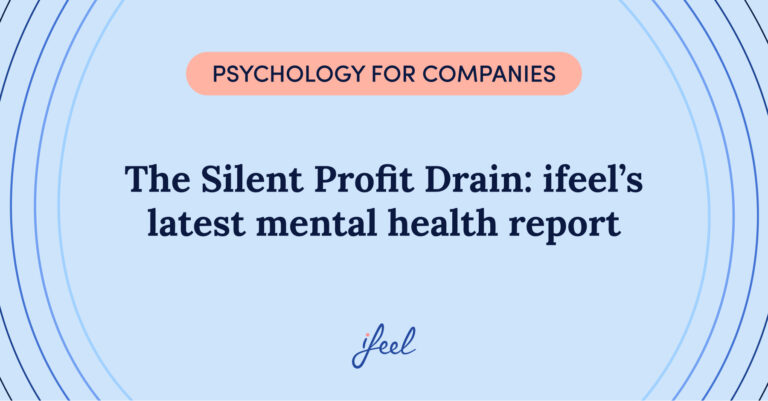Mental health in the retail industry has emerged as a critical area of focus. As leaders and HR managers, addressing this challenge effectively can enhance employee well-being and drive business performance. This article delves into key strategies and insights, presenting a comprehensive guide on strengthening mental health support within the retail industry.
Are you ready to take actionable steps to improve mental health in the retail industry and see tangible business results?
Understanding the challenges of mental health in the retail industry
The retail industry, characterised by long working hours, high customer interaction, and seasonal fluctuations, often stresses employees significantly. Tackling mental health in the retail industry is an essential moral obligation and a critical business necessity.
Here are some common challenges faced by workers in the retail industry:
| Challenge | Explanation |
|---|---|
| High-stress levels | Constant interaction with customers and meeting sales targets can lead to elevated stress levels. |
| Long and irregular hours | Extended working hours and shift work can disrupt work-life balance and lead to burnout. |
| Job insecurity | Fluctuating market demands and economic pressures can create uncertainty about job stability. |
| High employee turnover | Frequent staff changes can disrupt team dynamics and increase workloads for remaining employees. |
| Limited access to support | Many employees may lack easy access to mental health resources or feel uncomfortable seeking help. |
| Seasonal pressures | Busy periods like holidays can increase workloads and stress considerably. |
| Workplace harassment | Customer interactions and workplace dynamics may lead to harassment or bullying, affecting mental health. Research shows that Retail employees have faced increased aggression and abuse from customers, particularly during the pandemic. This has led to heightened stress and anxiety among workers |
| Low job satisfaction | Repetitive tasks and limited career advancement opportunities can decrease job satisfaction. |
Key benefits of focusing on mental health
- Reduction in absenteeism: Prioritising mental health can reduce absenteeism, translating into significant cost savings.
- Enhanced employee engagement: A supportive environment fosters higher engagement levels, improving productivity and service quality.
- Talent retention and attraction: Companies that invest in mental well-being are more likely to attract and retain top talent.
Strategies for promoting mental health in the retail industry
Addressing mental health in the retail industry is crucial for enhancing employee well-being and productivity. Implementing effective strategies can create a supportive environment where staff feel valued and empowered. Here are key approaches to consider:
1. Develop a comprehensive mental health plan
Creating a structured mental health plan is vital. This should include:
- Assessment of needs: Conduct regular surveys and focus groups to understand employees’ specific mental health challenges.
- Resource allocation: Ensure adequate resources are dedicated to mental health solutions, including manager training and access to therapy services.
2. Foster an inclusive work environment
Promote a culture that values diversity, equity, inclusion, and belonging (DEIB). This involves:
- Inclusive Policies: Implement policies that support work-life balance and flexible working arrangements.
- Awareness Programs: Conduct workshops to raise awareness about mental health and reduce stigma.
3. Continuous evaluation and improvement
Use key performance indicators (KPIs) such as employee satisfaction and engagement levels to assess and refine mental health initiatives continuously.

Valuable steps for implementation
To enhance mental health in the retail industry, decision-makers should consider the following strategic steps:
Step 1: Conduct a mental health audit
Identify current mental health challenges and resources within the organisation. Engage with employees through surveys and feedback sessions to gather insights about mental health in the retail industry.
Step 2: Develop tailored interventions
Develop interventions that address specific issues based on audit findings. These could include stress management workshops, peer support groups, and access to professional counselling.
Step 3: Train leaders and staff
Training is crucial for equipping managers and staff with the skills needed to support mental well-being. Regular workshops and e-learning modules can be effective tools.
Step 4: Establish a supportive infrastructure
Implement tools and resources that make accessing mental health support easy for employees. This includes establishing emotional support channels, digital platforms, and partnerships with mental health professionals. Additionally, offer regular workshops and training sessions to promote mental well-being and resilience.
ifeel’s mental well-being trends report
Explore the latest trends in workplace mental well-being with ifeel’s Mental Well-being Trends Report. This comprehensive report reveals that prevention is the cornerstone of effective mental health strategies in the workplace. With stress, anxiety, and burnout on the rise, fostering a supportive environment can increase productivity by up to 12%, according to the Mental Health Foundation. However, 57% of employees seek help only after suffering for over a year, highlighting the critical need for early intervention.
Ready to make mental health in the retail industry a priority? Download the full report now and discover actionable insights that can transform your team’s productivity and overall happiness.
Trust the leaders in mental well-being
At ifeel, we understand that promoting Mental Health in the Retail Industry is not just about compliance, but a strategic investment in a company’s success.
To support companies in this process, our team of expert workplace well-being psychologists has created a mental well-being solution for businesses that improves talent retention, reduces presenteeism, and combats employee stress.
With our mental well-being solution, your company’s HR managers can receive personalised, data-driven advice on improving mental health at work. In addition, this solution offers employees a 360° mental well-being service structured at different levels according to their needs. Try our solution now to see how it could help you.
We hope you found this article about mental health in the retail industry interesting. If you would like more information about our mental well-being solution for companies, simply request it, and we will contact your team as soon as possible.











